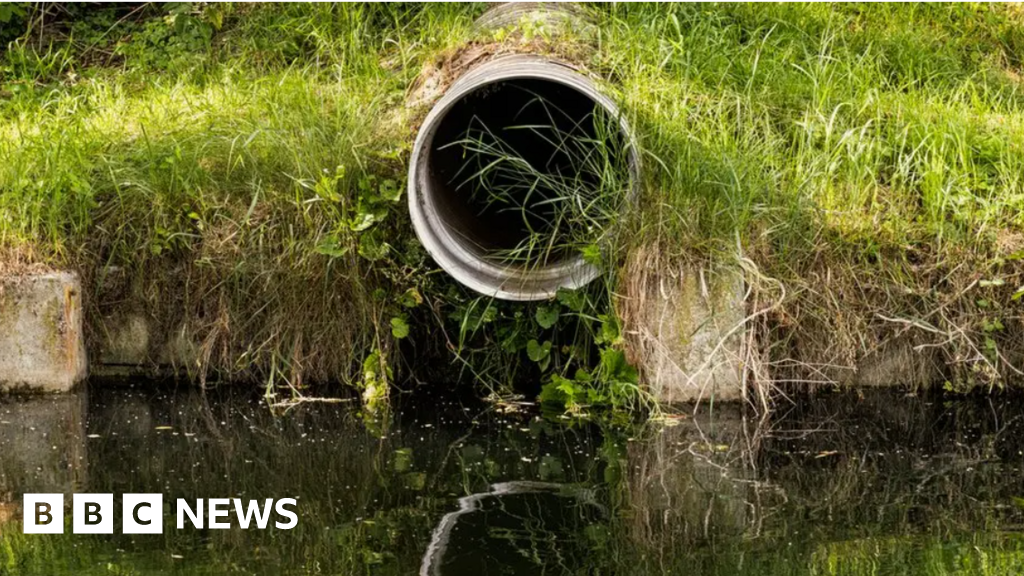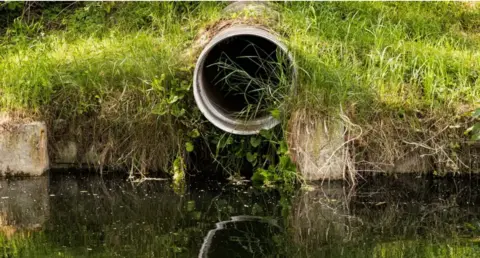
 Getty Images
Getty ImagesThree groups are challenging Thames Water and two councils over proposed housing developments in Oxford which they have said are “too much” for the city’s sewage system.
Windrush Against Sewage Pollution (WASP), Evenlode Catchment Partnership (ECP) and Upper Thames Fisheries said they were “hugely frustrated” over the matter and had written to Oxford City Council and South Oxfordshire District Council about the impact of increased sewage on the system, operated by Thames Water.
The two developments of concern are 1,450 planned homes at Bayswater Brook and another 24 near Goose Green Close.
Thames Water and Oxford City Council said they were working “closely” with each other, the Environment Agency (EA) and the Water Services Regulation Authority (Ofwat) to deliver housing needs and protect the environment.
South Oxfordshire District Council has not yet responded to a BBC request for comment.
The three groups said the two planned developments “could be too much for the city’s sewerage system”.
“Yet again, Thames Water has chosen to put its profits before its responsibility to its customers’ health and the environment,” they added.
The development near Goose Green Close was granted approval by the authorities last month, while Bayswater Brook was approved on Wednesday.
The issues with the sewerage system in Oxford have been acknowledged by the EA.
It objected to the Bayswater Brook development because of “significant concern” about the state of Oxford sewage treatment works (STW).
In 2021, the EA advised upgrades to the sewerage system would need to be implemented to deal with additional sewage flows created by further housing.
While conditions are proposed in the planning permissions for both developments, it has argued they are “not adequate”.
It said the plans only contained vague references to a “development and infrastructure plan” that might still allow the developments to be occupied before the works to Oxford STW were carried out.
‘Breaking point’
WASP environmental consultant, Vaughan Lewis, said: “We should not be having to take this step to remind local authorities of their responsibility to protect local rivers.”
Ann Berkeley, from ECP, said: “Housing developments are being giving planning permission without any upgrades, making a very bad situation even worse.”
Leigh Day solicitors, which is representing WASP, said: “It’s hugely frustrating that things have got to a stage where a choice has to be made between the building of much-needed housing and further pollution to rivers.”
It added: “This situation could have been avoided if Thames Water had made the investments needed to its sewage infrastructure before the sewage network had reached breaking point.”
Oxford City Council leader Susan Brown said: “We have long been raising the major problems created by the historic lack of investment by Thames Water.”
A Thames Water spokesperson said: “As infrastructure ages and demand on it increases more investment is needed across the entire sector that’s why we’ve asked for increased investment.”